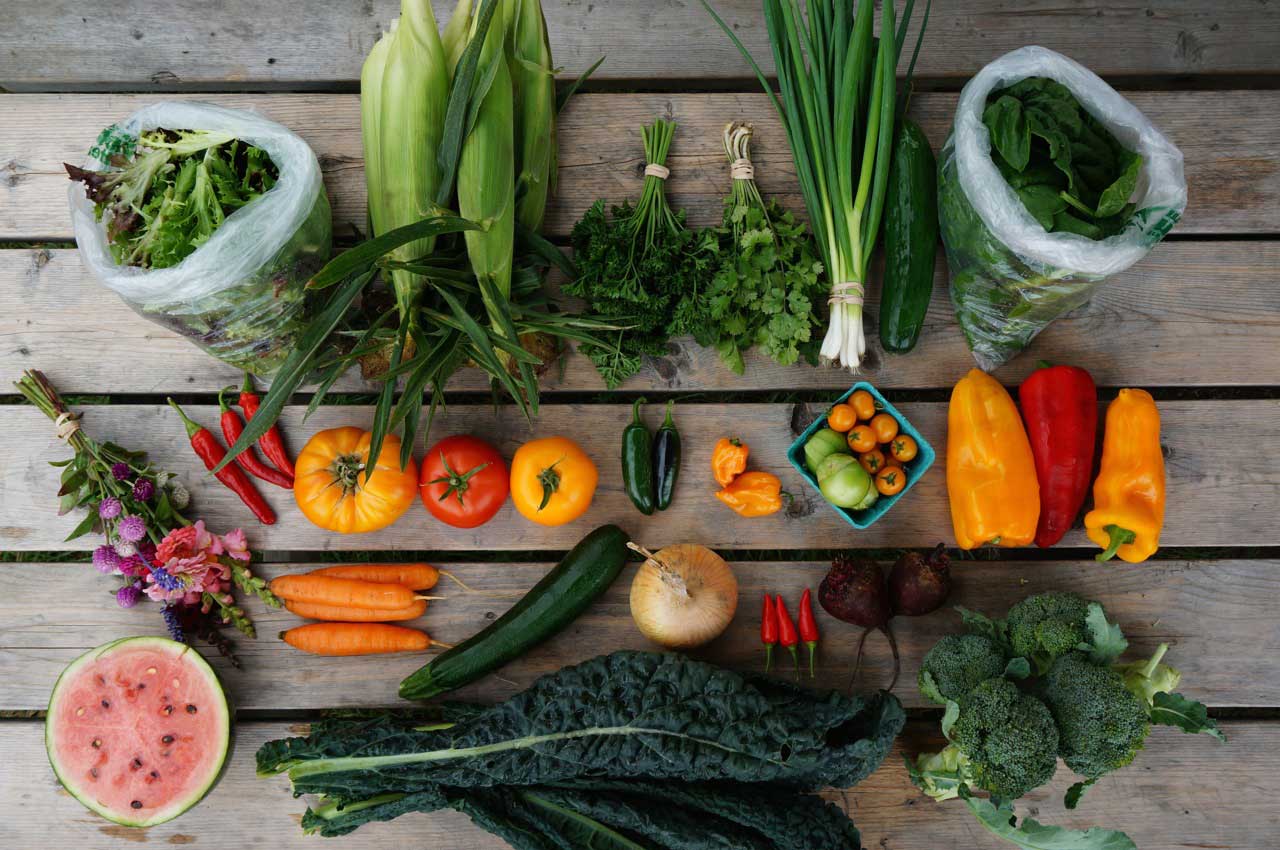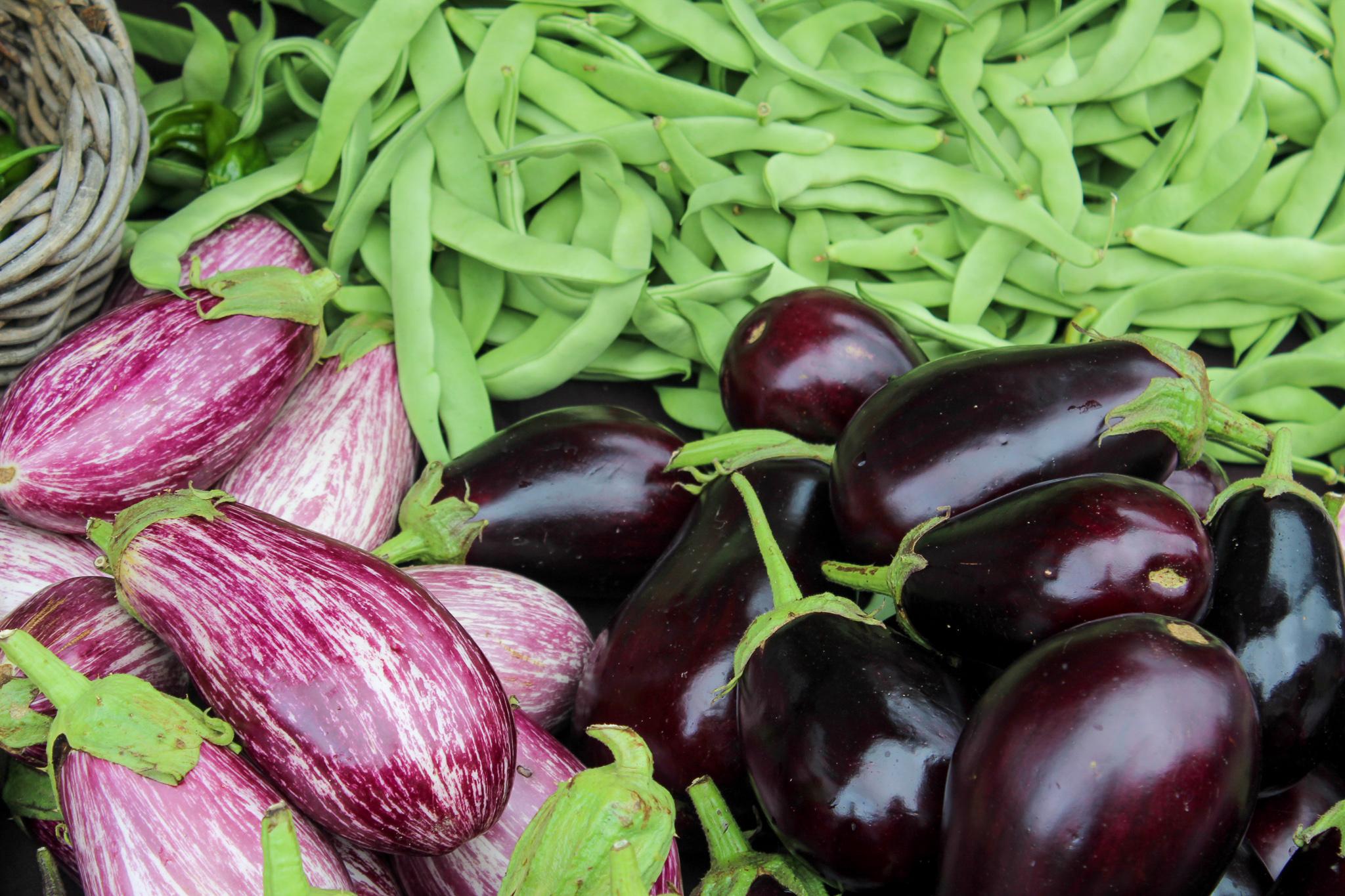We are in the midst of spring and summer CSA sign-up season once again! For those who don’t know, CSA stands for Community Supported Agriculture and is a key way for some farmers to gain early-season income. The basics are that customers (many of us) give a farmer a lump sum of money at this time of year, in exchange for a weekly share of vegetables or meat throughout the growing season and sometimes into the fall and even winter. There are many permutations beyond that basic model and many unique options.
At the core of CSA is resilience. The CSA model gives farmers income at the beginning of the planting season when they often have high expenses– seeds, compost, labor – and before harvesting leads to income. In addition, as a community-held entity, a CSA spreads some of farming’s inherent risks to the community members who choose to support the farm as CSA members. In turn, this model helps community members better appreciate the connections between factors like weather and growing practices and their direct impact on the food that they may or may not receive in their CSA share. It also helps members develop a deeper understanding of what grows in one’s area during each part of the year. In a typical year, a CSA provides an abundant supply of food to shareholders and a sense of community with others also invested in sourcing their food locally.
In difficult seasons, such as 2023, CSAs can provide a vital backbone of support that farmers need by spreading the impact to customers, hence the “community support.” This idea was underscored during a NOFA-VT staff tour last October of the Intervale Community Farm in Burlington focused on climate resilience. Among the many strategies and innovations that the farm has employed, farmer Andy Jones shared that, “perhaps the farm’s strongest climate resilience tool is the support we received from our CSA members when the farm flooded in July. These community relationships are key to our success as we navigate the challenges of climate change.” Jones went on to share that, “as much or more than the prepayment aspect of CSA, the market certainty provided by people joining a CSA is one of the key aspects that makes CSA a powerful tool for farms. You can borrow against known future income to fund spring cash flow, but knowing where you are selling your product and avoiding the need to look for a market while holding a highly perishable product is a huge advantage. This really helps farms level out demand fluctuations and plan production appropriately.”
The flooding this past summer caused several farms to reduce their CSA offerings, but in most cases, their customers accepted the changes without complaint. Sharing the risks of a bad season in this way can be critical to helping a farm make it through to the next year and is an investment in a thriving food system.
While the upfront payment is a cornerstone of the CSA model, not all community members can afford this cost— something most farmers are well aware of. The Farm Share Program, begun by NOFA-VT in 1995 in response to requests from farmer members, provides discounts on CSA shares for folks who need financial assistance. Once Farm Share participants select the CSA they’d like to join, NOFA-VT covers the cost of a portion of the share, allowing the CSA member to pay for the remainder and pick up their food in the same way as all other CSA members, while still ensuring the farmer receives market price. In its first year, the program served a dozen individual families and three farms and has since grown to reach over 500 Vermont families and more than 60 farms in the past year.
The Farm Share Program, one of a suite of NOFA-VT food access programs, has become an increasingly important market for farms. In 2023, NOFA-VT and Farm Share participants contributed over $204,000 towards CSA shares at farms, compared to $74,000 in 2019. While these programs break down barriers for Vermonters to access local food, they simultaneously broaden the customer base for farmers, reaching folks who may not have been able to purchase from them otherwise and providing a new income source.
Farm Share offers great market potential for Vermont food producers, but only as long as there is funding to cover the share discount. NOFA-VT has relied on philanthropy and contributions from the farms’ community members to support this cost-sharing. While these are vital sources of support, philanthropy alone cannot support the increasing need. Because of this, NOFA-VT is advocating this legislative session for a state budget request for $478,500 in FY25 to support Farm Share and our other food access programming, Crop Cash and Farm Stand Match. A state allocation would bring more sustained funding to these crucial programs, ultimately stabilizing our ability to meet demand while ensuring the programs are a reliable source of income for farms.
If you would like to share your support for this budget request with your legislators, please email [email protected] with your town, name (or your desire to stay anonymous), and why you support funding for the Farm Share and NOFA-VT’s other food access programs. If you're part of an organization that would like to show support, we encourage you to sign on to this letter. Thank you for helping us champion this effort!


